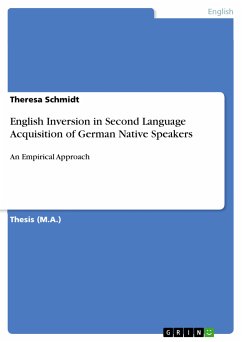Seminar paper from the year 2008 in the subject English Language and Literature Studies - Comparative Literature, grade: 1,3, , language: English, abstract: Learners of a second language are confronted with different challenges. They have to learn new words and grammar rules and how to apply them. To improve their skills they need to be corrected or they must have the possibility to correct themselves by comparing their usage of the foreign language with that of native speakers. However, there are some implicit rules to using a language which are rarely detected by both learners and native speakers. One of these cases is the usage of discourse markers (DM) (Svartvik 1980:171). Swedish linguist Jan Svartvik assumes that such particles’ inadequate applications have more far-reaching consequences during communication than grammatical incorrectness (1980:172). In this essay I will concentrate on the DM like since it is amongst the most frequently used by native speakers of English (Fox Tree 2006:727, 2007:309; Müller 2005:197). As research has shown, non-native speakers use like less often as a DM than native speakers (Fuller 2003:200; Fung and Carter 2007:435; Hikyoung 2004:121; Müller 2005:230). Thus, I will firstly argue that the infrequent use of like as a DM is one feature by which non-native speakers can be recognized as such. Secondly, I will show that this deficit in pragmatic competence effects their communication with native speakers negatively. I claim that the reasons for the lower rate of like relates to its pragmatic functions and the way in which English is taught.









